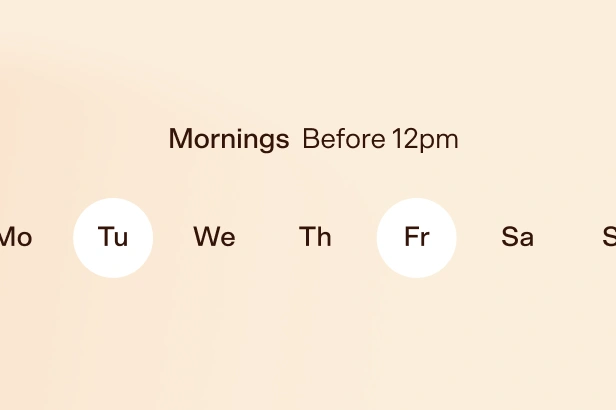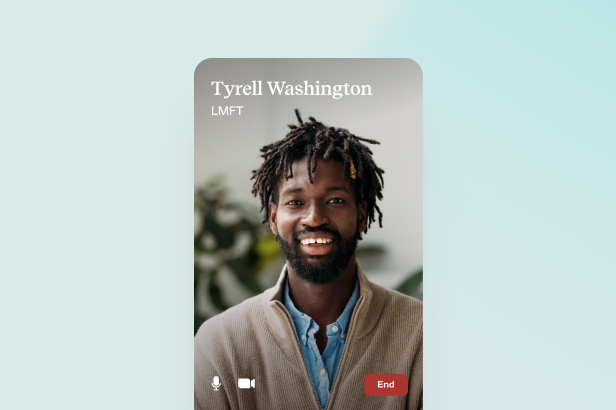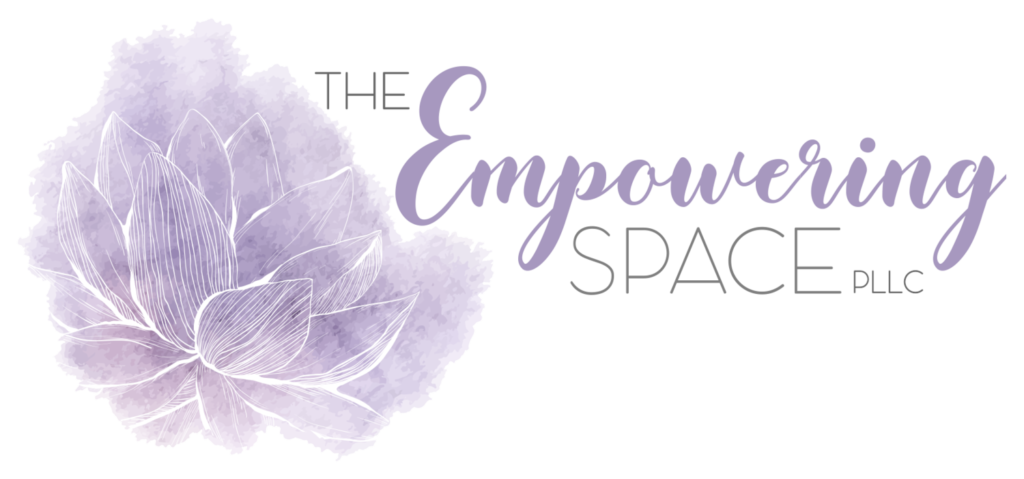Know How CBT Therapy in Texas Can Save Texans From Trauma
Cognitive Behavioral Therapy (CBT) is a very effective method to treat mental health related issues. CBT Therapy in Texas is a familiar term for Texans who affected in trauma or other this type problem. It is considered one of the reliable method to treat anxiety, depression, PTSD, OCD, bipolar disorder, insomnia, and more, with clinical studies showing it can be as effective as medication for many conditions—often with longer-lasting results. In a recent statistics show that it has 42% success rate in treating anxiety and depression type disorders.
Texas has a diverse population and it includes urban hubs (Austin, Dallas, Houston) and rural communities where people face mental health disparities exacerbated by factors like economic stress, natural disasters, and transitional phases of life (e.g., college students, young professionals). CBT’s evidence-based, short-term approach (typically 6–20 sessions) is ideal for Texans seeking practical, fast-acting relief from anxiety, depression, PTSD, OCD, and insomnia.
Local online platforms like The Empowering Space provide their service in mega cities like Dallas to rural areas including Fredericksburg, Luckenbach, Wimberley, Georgetown, Marfa, Gruene, Jefferson, and Port Aransas. They specialize in emerging adults (18–35), addressing issues like social anxiety, ADHD, and trauma with techniques like exposure therapy and cognitive restructuring. The use of CBT in mental health issues is very praiseworthy it helping Dallas professionals manage insomnia or guiding trauma survivors in Austin toward healing, CBT equips Texans with practical tools to achieve lasting mental wellness.








What is CBT Therapy?
Cognitive Behavioral Therapy (CBT) is a goal-oriented, short-term form of psychotherapy designed to help individuals identify and change unhelpful thought patterns and behaviors. It is evidence-based, widely recognized as the gold standard for treating mental health challenges, and focuses on practical skills to improve emotional well-being and overall quality of life.
- Attend sessions from the comfort of your home or any location that suits you.
- Providing personalized guidance tailored to your unique challenges and needs.
- Helping you and your partner connect more deeply and effectively address issues.
Components of Cognitive Behavioral Therapy (CBT)
Cognitive Behavioral Therapy (CBT) is built on the understanding that thoughts, feelings, and behaviors are interconnected , and dysfunctional patterns in these areas can perpetuate mental health challenges. Key components include:
- Identification of Faulty Beliefs :
CBT begins by helping individuals recognize negative or distorted thought patterns (e.g., “I’m not good enough” or “Everything will go wrong”) that fuel emotional distress and unhelpful behaviors. For example, a person with low self-esteem might believe they lack the skills to succeed at work, leading to avoidance of career opportunities.
- Cycle of Negative Thoughts and Behaviors :
These faulty beliefs often create a self-reinforcing cycle. Negative thoughts (e.g., “No one likes me”) can trigger anxiety or sadness, prompting behaviors like social withdrawal or procrastination, which in turn reinforce the original belief.
- Collaborative Therapeutic Process :
Therapists work with clients to challenge and reframe these thoughts. Using evidence and logic, they question the validity of beliefs (e.g., “What proof do you have that no one likes you?”) and replace them with balanced, realistic perspectives (e.g., “I have friends who care about me”).
- Behavioral Interventions :
Clients learn to modify behaviors that stem from maladaptive thinking. For instance, someone avoiding social situations due to anxiety might practice gradual exposure to build confidence, breaking the cycle of avoidance.
- Focus on Present and Practical Solutions :
CBT prioritizes addressing current challenges rather than delving deeply into past experiences. It equips clients with actionable strategies (e.g., problem-solving skills, mindfulness) to manage stressors and improve daily functioning.
Example : A young adult with low self-esteem might avoid applying for promotions due to thoughts like, “I’ll never get the job.” Through CBT, they identify this belief, challenge its validity, and replace it with a constructive mindset (“I can prepare and try my best”). Behavioral activation—such as updating their resume or practicing interviews—helps them take concrete steps toward career growth, reinforcing their newfound confidence.
By targeting these components, CBT fosters lasting change, empowering individuals to break free from destructive cycles and build resilience.

CBT Process Used in Treatment
Cognitive Behavioral Therapy (CBT) is an organized, step-by-step approach to improving mental health by tackling the connections between what we think, feel, and do. It starts by helping people spot negative thoughts, like “I’ll never be good enough” or “Everyone judges me.” Therapists work with clients to see how these thoughts lead to unhelpful actions, such as avoiding social events or relying on unhealthy coping mechanisms.
Tools like writing down thoughts and rethinking them in a more balanced way help break these patterns. For example, someone with social anxiety might realize their fear of being judged comes from assuming past mistakes define every new situation.
Next, CBT focuses on changing behaviors. Clients practice skills like slowly facing fears (e.g., starting small talk to reduce anxiety) or doing activities that boost mood (like exercise or hobbies) to fight depression. These skills are practiced in therapy and used in real life. For instance, a young adult struggling with insomnia might learn to replace scary thoughts like “If I don’t sleep, my life will fall apart” with calmer ones and build habits like a bedtime routine.
Through teamwork and practical exercises, CBT gives people lifelong tools to swap harmful habits with healthier choices, building confidence and resilience to handle life’s challenges.
What to Expect from a CBT Program
A Cognitive Behavioral Therapy (CBT) program begins with a collaborative assessment of your mental health concerns, where you and your therapist identify specific goals tailored to your needs. Designed as a short-term, structured approach (typically 5–20 sessions), CBT focuses on addressing current challenges by examining the interplay between your thoughts, emotions, and behaviors.
For example, if managing anxiety is your goal, sessions may involve exploring the root causes of your anxiety, pinpointing triggers (e.g., social situations or work stress), and learning practical coping strategies like cognitive restructuring (challenging negative thoughts) or exposure therapy (gradually facing fears). Therapists guide you in recognizing unhelpful patterns—such as catastrophizing or avoidance—and replacing them with balanced perspectives and actionable skills.
Techniques like thought records, problem-solving exercises, and role-playing may be used to practice new responses to stressors. Over time, this process fosters self-awareness, empowering you to modify behaviors and thought patterns that contribute to distress. By the end of the program, you’ll have tools to manage symptoms independently, whether addressing anxiety, depression, OCD, or other concerns, leading to lasting improvements in mental well-being.

Benefits of CBT Therapy
Cognitive Behavioral Therapy (CBT) is a powerful, evidence-based approach that delivers lasting improvements in mental well-being. By addressing the root causes of emotional distress and equipping you with practical tools, CBT empowers you to take control of your mental health journey. Here’s how CBT creates meaningful, long-term change:
- Symptom Reduction
CBT effectively reduces symptoms of anxiety, depression, PTSD, OCD, and other conditions by targeting negative thought patterns and behaviors that fuel distress. - Emotional Mastery
You’ll learn to manage overwhelming emotions like fear or sadness through techniques like cognitive restructuring, which helps you reframe unhelpful thoughts (e.g., turning “I can’t handle this” into “I can take small steps to cope”). - Lifelong Coping Skills
CBT teaches actionable strategies—such as mindfulness, problem-solving, and exposure therapy—to navigate stressors, setbacks, and triggers confidently. - Trigger Awareness
By identifying situations or thoughts that worsen your symptoms, you’ll develop proactive strategies to avoid or manage them, reducing the risk of relapse. - Boosted Self-Esteem
Challenging self-critical beliefs (e.g., “I’m not good enough”) and replacing them with balanced perspectives fosters confidence and self-compassion. - Mental Stability
CBT helps stabilize mood swings, manage chronic conditions like bipolar disorder, and build resilience against future challenges. - Enhanced Quality of Life
With improved emotional regulation and coping skills, you’ll experience deeper relationships, greater productivity, and a renewed sense of purpose.
Why CBT Therapy Lasts
Though CBT is short-term (often 6–20 sessions), its focus on skill-building ensures you carry tools forward for life. Clients report sustained progress years after therapy ends, making it one of the most enduring and empowering mental health interventions available.

We’re Texans Helping Texans .
As a mental health service based in Texas, we get what makes our state unique—from the busy streets of Houston and Dallas to the quiet ranches of West Texas.
We know the challenges Texans face, whether you’re juggling life in Austin, raising a family in San Antonio, or living in a rural county with few therapy options. If you’re in Abilene or anywhere else across the Lone Star State, online therapy is here for you. No matter your zip code, support is just a click away. If you are suffering with below problems it is high time to meet a therapist
- Abuse
- Addictions
- Adjustment/Transition Issues
- Anger Management
- Anxiety
- Attachment Disorders
- Bereavement and Loss
- Career Counseling
- Depression
- Family Conflict
- Isolation and Loneliness
- Low Self-Esteem
- Panic Attacks
- Post-Traumatic Stress Disorder (PTSD)
- Relationship Issues
- Self-Esteem Issues
- Stress
- Transitions
- Trauma
- Work-Related Stress
- Attend sessions from the comfort of your home or any location that suits you.
- Providing personalized guidance tailored to your unique challenges and needs.
- Helping you and your partner connect more deeply and effectively address issues.
Services We Provide
At The Empowering Space , we offer a comprehensive suite of mental health services, including:
- Online Therapy Texas
- Individual Therapy Texas
- Couples Therapy in Texas
- Cognitive Behavioral Therapy in Texas (Austin)
- CBT Therapy Texas
- DBT Therapy Texas (Austin & Houston)
- Trauma Therapy Texas
- Addiction Therapy Killeen Texas
- Porn Addiction Therapy Texas
- Conversion Therapy in Texas
- EMDR Therapist Dallas Texas
- Family Therapy Texas (Arlington, Austin, Plano)
- North Texas Couple and Family Therapy
- Mental Health Services Texas (Abilene, Killeen, San Antonio, Austin, Beaumont)
Our multidisciplinary approach ensures that you receive holistic care tailored to your unique needs.

Meet Our Top CBT Therapy Expert Licensed In Texas
Our team of licensed therapists is trained to support you with care that’s as tough and resilient as the Lone Star State itself. From Houston to El Paso, Dallas to the Rio Grande Valley, we understand the unique struggles Texans face—whether you’re balancing city life, ranching, or raising a family.
Here’s what makes us different:
- Texas-certified therapists who get your story.
- Down-to-earth care focused on helping you feel better, stronger, and ready for life’s challenges.
- No fancy jargon —just real talk and a plan that works for you .
Meet our team and start your journey. Whether you’re in a big city or a small town, we’re here to listen.”
At glance the famous therapist of Texas serving for Texans
- Javiel Rowe (LMSW) : Online Mental Health Therapist
- Kelley Allen, LCDC : Licensed Chemical Dependency Counselor
- Irene Robinson, LMSW : Virtual CBT Therapist
- Roxana Gonzalez, LMSW : Anger Management Therapist
- Janelle Davis, LMSW : Couples and Family Therapist (Online)
- Cassandra Fields, LPC-A : Virtual CBT Therapist
- Ayisha Mullen, LMSW : Online Depression Therapist
- Yanitza Rice, LMSW, LCDC, CGP : Best EMDR Therapist Online
- Krystle Cumby, LCSW : Expert CBT & DBT Therapist
- Brandon Willis, LCSW-S : Online Solution-Focused Therapist
- Melanie Adams, LCSW : Best Online PTSD Expert Therapist
- Deebra Jennings, LMSW : Virtual Family Therapist
- Deandra Williams, LCSW : Children & Family Therapist (Online)
- Brittany Woodley, LCSW-S : Mental Health Therapist
"Budget Concerns? No Need to Worry – We’ve Got You Covered!
We believe that affordable care is key for this reason we accept major insurances like Anthem, Blue Cross Blue Shield, Cigna, UnitedHealthcare, and more.
Not sure about coverage? We’ll check for you—no surprises. If insurance isn’t an option, sessions with trainee therapists start at $35, and we take credit cards, FSA, or HRA. Your first consultation is always free!

Virtual Mental Health Services: Expert Help, Anytime, Anywhere.
Complete the form below to schedule a free 15-minute consultation with one of our experienced therapists. We’ll discuss your needs and help you create a personalized treatment plan.
Take the first step today! Let us empower your love story with expert care tailored just for you.
How Our CBT Therapy In Texas, Works
The impact of trauma can be ever-haunting. At the Empowering Space, our easy 6-step guide will show you how to seek therapy online.

1. Easy Online Registration
Getting started is simple! Visit our website and fill out a quick registration form. Provide some basic information about yourself, and your trauma history. Let our therapists guide you toward recovery.

2. Personalized Therapist Matching
Once registered, we’ll match you with a trauma-specialized therapist. We consider your unique needs, preferences, and availability to ensure a comfortable and supportive therapeutic experience.

3. Schedule Your First Session
Once matched, you'll schedule your first session. Choose from flexible appointment times, including evenings and weekends. For your comfort, select either video calls or secure messaging for your sessions.

4. Engaging and Supportive Sessions
During sessions, engage in open conversations with your therapist. They’ll use tailored techniques like EMDR, CBT, or mindfulness to guide you. Our therapists provide a safe space for you to heal and grow.

5. Ongoing Support and Resources
Healing is a journey. We support you with resources, exercises, and community access. Your therapist will provide additional tools to practice between sessions. Connect with others for shared experiences and support.

6. Continuous Progress Tracking
As you move forward in your therapy journey, we’ll work together to track your progress and adjust your treatment plan as needed. Your therapist will regularly check in to ensure you're receiving the best support.
Benefits of Mental Health Services At Fingertips!
Yes, healing from any trauma or emotional scar can feel overwhelming. But fear not! We will be with you every step of the way. You’ll feel a sense of reliance on our friendly mental therapy team. Here’s what you can expect:
Flexibility at Your Fingertips
Life gets busy. That’s why we offer flexible scheduling, including evenings and weekends. Connect with your therapist from the comfort of your home. Skip the travel stress and fit sessions into your busy schedule. Access therapy from anywhere in Texas—whether you're in Houston, Austin, or North Texas. Expert couples therapy in Dallas, Austin, and beyond ensures statewide convenience.
Expert Care, Personalized
Our licensed therapists specialize in trauma-related issues. They’ll tailor their approach to your unique needs, whether you’re dealing with PTSD, anxiety, or other challenges.
A Safe Space to Heal
Share your story without judgment. Our therapists create a safe, confidential environment where you can express yourself freely.
Holistic Support for Lasting Change
Your healing journey extends beyond therapy sessions. We provide practical tools, resources, and a supportive community to help you integrate what you’ve learned.
Affordable Care, Accessible to All
We believe everyone deserves access to quality mental health care. Our services are affordable, with many insurance plans covering therapy sessions.
Your Progress, Our Priority
We’re committed to your success. Your therapist will track your progress, set goals, and adjust your treatment plan as needed.
Ready to start your healing journey? Take the first step today.
Get the Most Affordable Online CBT Therapy in Texas
Affordable family therapy online provides a valuable resource for partners seeking to strengthen their relationship without the financial burden of traditional therapy. By leveraging technology, couples can access the support they need to navigate their challenges and build a healthier, more fulfilling partnership.

Cost-Effective Options
Online therapy often comes with lower fees compared to in-person sessions. Many therapists offer sliding scale rates based on income, making it easier for couples to find affordable options that fit their budget.

Flexible Scheduling
With online therapy, couples can schedule sessions at times that work best for them, including evenings and weekends. This flexibility can help reduce the stress of coordinating schedules and make therapy more accessible.

Variety of Platforms
Couples can choose from various online platforms for therapy, including video calls, phone sessions, or even chat-based therapy. This variety allows partners to select the format that feels most comfortable for them.

Access to a Wider Range of Therapists
Online therapy breaks geographical barriers, enabling couples to connect with therapists who specialize in their specific needs, regardless of location. This access can lead to finding the right fit for their therapeutic journey.

Anonymity and Comfort
Many couples feel more at ease discussing sensitive topics in the privacy of their own homes. Online therapy can provide a sense of anonymity, allowing partners to open up more freely about their relationship challenges.

Resources and Tools
Affordable online therapy often includes access to additional resources, such as worksheets, exercises, and educational materials. These tools can enhance the therapeutic experience and provide couples with strategies to implement between sessions.
